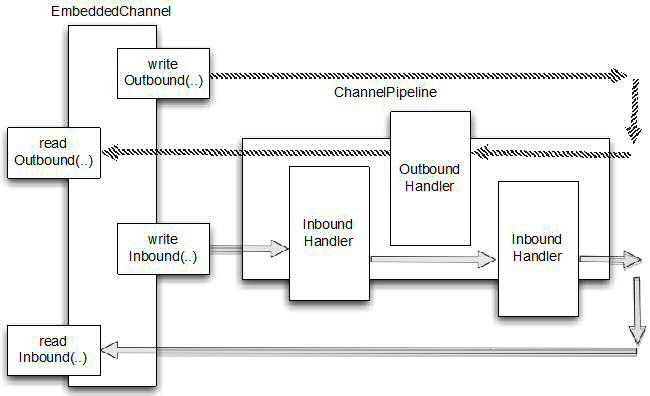- 小黑笔记本,写的todolist效果,增删效果,显示隐藏,全部清除效果。
YangHuan3
html
先说一下总的大致要去实现的效果:1.新增2.删除3.统计4.清除5.隐藏给大家看一下todoList的大致样式吧!第一个效果:新增1.生成列表结构(v-for数组)2.获取用户输入(v-model)3.回车获取数据(v-on,enter添加数据)第二个效果:删除1.点击删除指定的内容(v-onsplice索引)通过对应的下标删除指定的元素,并且v-for指定的内部是可以获取到当前循环元素下标的,这
- C语言每日一练——day_9
Run_Teenage
C语言入门练习题c语言开发语言
引言针对初学者,每日练习几个题,快速上手C语言。第九天。(连续更新中)采用在线OJ的形式什么是在线OJ?在线判题系统(英语:OnlineJudge,缩写OJ)是一种在编程竞赛中用来测试参赛程序的在线系统,也可以用于平时的练习。详细内容可以看一下这篇博客:关于C/C++语言的初学者在哪刷题,怎么刷题-CSDN博客https://blog.csdn.net/2401_88433210/article/
- UI自动化测试与性能测试
scratchpads
ui鸿蒙harmonyos
在HarmonyOSNEXT应用的开发过程中,除了单元测试和集成测试外,UI自动化测试和性能测试也是不可或缺的环节。UI自动化测试用于确保应用的用户界面能够正确响应用户操作并提供预期的交互体验,而性能测试则评估应用在不同负载条件下的表现,确保其具备良好的响应速度和稳定性。本文将重点讨论如何在鸿蒙操作系统中进行UI自动化测试和性能测试,帮助开发人员提升应用质量。一、UI自动化测试UI自动化测试(UI
- HPC综合-心得与笔记【19】
sakura_sea
HPCand3DGraphicsEngine线性规划
Dijkstra算法【2】基础距离数组dist,设置起点距离为0,其他节点距离为无穷大(∞)用最小堆创建优先队列,将起点放入队列。从队列中取出当前距离最小的节点u。遍历u的每个邻接节点v,计算从起点到v的路径长度:alt=dist[u]+weight(u,v)。如果altdist[u]:continue#遍历邻接节点forv,weightingraph[u].items():alt=dist[u]
- 《算法笔记》9.4小节——数据结构专题(2)->二叉查找树(BST) 问题 A: 二叉排序树
圣保罗的大教堂
《算法笔记》算法
题目描述输入一系列整数,建立二叉排序数,并进行前序,中序,后序遍历。输入输入第一行包括一个整数n(1#include#include#include#include#include#include#include#include#include#include#include#include#include#defineINF0x3f3f3f3f#definedb1(x)coutleft);Fre
- 小红书app复制链接转换为直接可访问链接,网页版链接,小红书短链转长链(最新版)
才华是浅浅的耐心
python爬虫开发语言
简介:小红书手机app分享的链接需要点击才能获取完成链接,本文教大家如何通过代码的方式将xhs的短连接转化为长链接。1.正常我们分享的链接是这样的:44小猪吃宵夜发布了一篇小红书笔记,快来看吧!KeA1GIGiSMXGWy7http://xhslink.com/a/sT7omKb6ijX6,复制本条信息,打开【小红书】App查看精彩内容!转换后是这样的:https://www.xiaohongsh
- C# 技术使用笔记:如何高效处理字符串
caifox菜狐狸
C#技术使用笔记c#笔记stringStringBuilderSubstringReplaceSplit
1.C#字符串基础概念1.1字符串不可变性在C#中,字符串具有不可变性,这意味着一旦创建了一个字符串对象,其内容就不能被修改。例如,当我们执行以下代码时:stringstr="Hello";str=str+"World";实际上,str+"World"并是修改了原来的"Hello"字符串,而是创建了一个全新的字符串对象"HelloWorld",并将str的引用指向了这个新对象,原来的"Hello"
- TCP/IP学习笔记(5) --IP选路
ox0080
Linux网络linux网络
静态IP选路一个简单的路由表选路是IP层最重要的一个功能之一。前面的部分已经简单的讲过路由器是通过何种规则来根据IP数据包的IP地址来选择路由。这里就不重复了。首先来看看一个简单的系统路由表。命令:routeprint|more对于一个给定的路由器,可以打印出五种不同的flag。U表明该路由可用。G表明该路由是到一个网关。如果没有这个标志,说明和Destination是直连的,而相应的Gatewa
- Redis客户端jedis与lettuce的区别
风雨无阻1203
RedisJava研发文档redis缓存LettuceJedis
什么是Lettuce与JedisLettuce是一个高级Redis客户端,用于线程安全的同步、异步和反应式访问。它支持高级的Redis特性,如Sentinel、集群、流水线、自动重新连接和redis数据模型等。Lettuce是完全非阻塞的,基于Netty事件驱动的通信层,其方法将返回具有可观察的类型,可在流或异步编程环境中使用。Jedis是基于Java语言的Redis的客户端,Jedis=Java
- Redis两种客户端:lettuce和Jedis的区别
Darren i
redisspring
springboot2的spring-boot-starter-data-redis中,默认使用的是lettuce作为redis客户端,它与jedis的主要区别如下:Jedis是同步的,不支持异步,Jedis客户端实例不是线程安全的,需要每个线程一个Jedis实例,所以一般通过连接池来使用JedisJedis常用APILettuce是基于Netty框架的事件驱动的Redis客户端,其方法调用是异步
- 大众文艺杂志社大众文艺杂志大众文艺编辑部2025年第3期目录
QQ296078736
人工智能
公共文化服务研究提高基层群众音乐鉴赏水平的策略研究罗婉琳;1-3文艺评论《增广贤文》:深入剖析其中的人学智慧姚志清;4-6当代战争视阈下近20年军旅戏剧军事文化观的嬗变研究(2000~2023年)邱远望;7-9从奥威尔的《射象》看分裂的自我与身份认同何玉蔚;10-12南宋都市笔记中的临安园林及其美学意义张凯歌;13-15文博与数字化研究数字时代与媒介史视域下的多模态图书馆系统及新质书香社会建设鹿钦
- Eaglewood-开发单片机函数封装技巧
OverflowSummer
嵌入式泛用知识学习笔记单片机嵌入式硬件
目录一、核心原则:(一)、高内聚低耦合:每个函数只做一件事,减少依赖。(二)、接口清晰:隐藏实现细节。(三)、可配置性:通过宏、结构体或回调支持灵活扩展。(四)、可移植性:抽象硬件差异,降低移植成本。一、模块化设计五、宏定义配置参数二、在头文件中宏定义函数三、使用结构体封装硬件配置四、回调函数机制六、错误处理与返回值封装七、硬件抽象层(HAL)八、静态函数限制作用域九、版本兼容性设计十、使用con
- 施磊老师c++笔记(三)
Zhuai-行淮
施磊老师cppc++笔记
c++模板编程-学习cpp类库的编程基础文章目录c++模板编程-学习cpp类库的编程基础1.函数模板2.理解模板函数3.实现cpp的vector向量容器4.理解容器空间配置器allocator的重要性1.函数模板内容:模板的实例化,模板函数,模板类型参数,模板非类型参数,模板的实参推演,模板的特例化,模板函数模板的特例化非模板函数的重载关系区分函数模板和模板函数的概念!!!模板的意义?对类型也可以
- S32K144外设实验(二):ADC单通道单次采样(软件触发)
上层精灵的赞美诗
#S32K144的外设基础实验单片机嵌入式硬件eclipsemcu笔记
文章目录1.概述1.1理论回顾1.1.1时钟系统1.1.2采样通道1.2实验目的2.配置与代码编写1.概述1.1理论回顾S32K144的ADC应该说是特别灵活,笔者采用循序渐进的方式来学习使用这个很重要的外设。在《入门笔记系列》专栏中对用户手册进行了翻译和解读,这里在回顾一下ADC的基本功能,第一次实验我们不使用过于复杂的触发方式。只使用一个通道来理解S32K144的ADC。1.1.1时钟系统首先
- 嵌入式C语言学习笔记(2)
愿抬头有阳光
c语言学习笔记
1.数组指针数组指针本质上就是一个指针,它里面存放的是数组的首地址。#includevoidshow(int(*p)[4],intn){for(inti=0;i4*4=16;3.命令行传递参数,main函数的标准格式intmain(intargc,constchar*argv[]){return0;}//argc:参数的个数包括./a.out//argv:参数的值列表argv[0]="./a.ou
- C++学习笔记:引用
etp_
c++学习笔记
引用是已知变量的别名,通过将引用变量用作参数,函数将使用原始数据而不是其副本。下面将r作为a的别名:inta;int&r=a;就像char*是指向char的指针一样,int&是指向int的引用。(a和r指向相同的值和内存单元)注意:&r表示r引用变量的地址。引用和指针的区别1.必须在声明引用时将其初始化,而不能像指针那样先声明再赋值。2.引用更接近const指针,一旦与某个变量关联起来便有一直效忠
- 关于使用python进行处理雷达数据笔记
六毛驴
python数据分析
好久不见,甚是想念本人深知这段时间鸽了一篇博(上一篇博),后续会补上的,今天想写一下关于使用python进行TI雷达接收回波数据处理的一些常见问题和解决方法。这也是前几天领导给我布置的任务,所以我将这段时间自己遇到的并且已经解决的问题进行了简单的汇总,也会推荐几本这几天阅读了python书籍。python书籍推荐:python学习手册MarkLutz著(对应python版本3.X,2.X都可)Py
- 深入学习 DNS 域名解析
dns解析
一、前言在平时工作中相信大家都离不开DNS解析,因为DNS解析是互联网访问的第一步,无论是使用笔记本浏览器访问网络还是打开手机APP的时候,访问网络资源的第一步必然要经过DNS解析流程。二、DNS是什么DNS(域名系统DomainNameSystem),它是一个记录域名和Ip地址相互映射的一个系统,是互联网的“电话簿”,负责将人类可读的域名(如example.com)转换为机器可识别的IP地址(如
- 嵌入式知识笔记1——C++面试复习(3)
Yuanyingbian
嵌入式学习资料笔记c++算法
四、关键字库函数4.1sizeof和strlen的区别strlen是头文件中的函数,sizeof是C++中的运算符。strlen测量的是字符串的实际长度(其源代码如下),以\0结束。而sizeof测量的是字符数组的分配大小。strlen本身是库函数,因此在程序运行过程中,计算长度;而sizeof在编译时,计算长度;sizeof的参数可以是类型,也可以是变量;strlen的参数必须是char*类型的
- 论文笔记-Contrastive Learning for Unpaired Image-to-Image Translation
kingsleyluoxin
计算机视觉论文笔记深度学习python计算机视觉机器学习人工智能深度学习
论文信息标题:ContrastiveLearningforUnpairedImage-to-ImageTranslation作者:TaesungPark,AlexeiA.Efros,RichardZhang,Jun-YanZhu机构:UniversityofCalifornia,Berkeley;AdobeResearch代码链接https://github.com/taesungp/contra
- Netty基础—Netty实现私有协议栈
工业甲酰苯胺
netty
1.私有协议介绍(1)什么是私有协议跨节点的远程服务调用(跨节点通信),除了链路层的物理连接外,还需要对请求和响应消息进行编解码。在请求和应答消息本身以外,也需要携带一些其他控制和管理类指令。例如链路建立的握手请求和响应消息、链路检测的心跳消息等。当这些功能组合到一起后就会形成私有协议。私有协议并没有标准的定义,只要是能够用于跨进程、跨主机数据交换的非标准协议,都可以称为私有协议。(2)公有协议与
- React学习笔记20
充气大锤
React学习笔记学习笔记javascript前端算法开发语言react.js
一、React.forward1.1、作用通过ref暴露子组件的DOM1.2、场景说明1.3、语法实现//子组件constInput=forwardRef((props,ref)=>{return})//父组件functionfather_component(){constinputRef=useRef(null)constfocus=(ref)=>{ref.current.focus()}ret
- Hadoop 实战笔记(二)-- HDFS 常用 shell 命令总结
dazhong2012
Hadoophdfshadoop
一、HDFS命令显示当前目录结构#显示当前目录结构hadoopfs-ls#递归显示当前目录结构hadoopfs-ls-R#显示根目录下内容hadoopfs-ls/创建目录#创建目录hadoopfs-mkdir#递归创建目录hadoopfs-mkdir-p删除操作#删除文件hadoopfs-rm#递归删除目录和文件hadoopfs-rm-R从本地加载文件到HDFS#二选一执行即可hadoopfs-p
- 程序员996写bug?这个AI工具让你头发越秃代码越香
后端
凌晨三点的写字楼里,小王第18次按下F5刷新浏览器,控制台又跳出了新的报错信息。咖啡杯底的褐色痕迹在显示器蓝光下格外刺眼,他突然想起入职时主管说的"程序员越秃越强",摸了摸发际线苦笑——原来这句话的潜台词是"用头发换代码"啊。直到上个月团建时,我发现隔壁工位的老张居然在团建现场掏出笔记本写代码。凑近一看,他正在用DeepSeek的智能提示功能自动补全单元测试。更气人的是,这厮今年居然还长出了新发茬
- C++学习笔记:函数重载及函数模板
etp_
c++学习笔记
函数重载默认参数能让你使用不同数目的参数调用同一个函数,而函数多态(函数重载)能让你使用多个同名函数。----一般完成类似的工作,但一定使用不同的参数列表(函数特征标)。下面定义一组原型如下的print()函数voidprint(constchar*str,intwidth);voidprint(doubled,intwidth);voidprint(longl,intwidth);编译器根据参数
- Uni-app 笔记二 (项目笔记)
天籁晴空
#vue3#TS#小程序--uni-appuni-app笔记
/***@authorwn*@date2023/07/2610:14:15*@description:uniapp笔记*//*1安全区域屏幕去掉状态栏+刘海剩余展示内容的区域--可通过uni.getSystemInfoSync()获取屏幕上边界到安全区顶部的距离。safeAreaInsets={top:59,left:0,right:0,bottom:34}"navigationStyle":"c
- Gymnasium学习笔记
songyuc
gymnasium
1.Customwrapper[doc]1.1reset()方法重写说明重写函数模板:defreset(self,**kwargs):obs=super().reset(**kwargs)...returnobs1.1.1签名解释Deepseek-r1-Cursor:reset()方法的定义如下:defreset(self,*,seed=None,options=None):...注意参数前的星号
- 蓝桥杯新手算法练习题单|冲击国一(三)
小咖拉眯
蓝桥杯蓝桥杯java数据结构算法dfsbfs
此题单为算法基础精选题单,包含蓝桥杯常考考点以及各种经典算法,可以帮助你打牢基础,查漏补缺。本题单目标是冲击蓝桥杯省一国一,团体程序天梯赛个人国三、XCPC区域赛铜/银奖前言本次题单重点关注模拟类问题,DFS问题,BFS问题目录模拟类题型一、最大子矩阵二、世纪末的星期三、图像相似度四、操作系统DFS题型五、老子的全排列呢六、皇后问题七、池塘BFS题型八、迷宫九、八数码问题十、字符变换一、最大子矩阵
- 24B参数模型碾压gpt4o-mini!推理速度超快!vLLM本地部署Mistral-Small 3.1+全方位测试多模态大模型!超越Gemma3.1,最适合企业项目的大模型!中文OCR能力也不弱
AI超元域
ocr人工智能aiAI编程aigc
本篇笔记所对应的视频https://www.bilibili.com/video/BV1Q9XLYiEwD/MistralAI最新推出的MistralSmall3.1模型无疑是近期科技界的一大亮点。这款由法国AI实验室MistralAI开发的开源多模态模型,以其卓越的性能和灵活性,为开发者、企业和研究人员带来了全新的可能性。凭借24B参数、对文本与图像的处理能力,以及在多个关键指标上的突破,Mis
- 《Operating System Concepts》阅读笔记:p359-p388
操作系统
《OperatingSystemConcepts》学习第32天,p359-p388总结,总计30页。一、技术总结1.paging(1)定义Acommonmemorymanagementschemethatavoidsexternalfragmentationbysplittingphysicalmemoryintofixed-sizedframesandlogicalmemoryintoblock
- 统一思想认识
永夜-极光
思想
1.统一思想认识的基础,才能有的放矢
原因:
总有一种描述事物的方式最贴近本质,最容易让人理解.
如何让教育更轻松,在于找到最适合学生的方式.
难点在于,如何模拟对方的思维基础选择合适的方式. &
- Joda Time使用笔记
bylijinnan
javajoda time
Joda Time的介绍可以参考这篇文章:
http://www.ibm.com/developerworks/cn/java/j-jodatime.html
工作中也常常用到Joda Time,为了避免每次使用都查API,记录一下常用的用法:
/**
* DateTime变化(增减)
*/
@Tes
- FileUtils API
eksliang
FileUtilsFileUtils API
转载请出自出处:http://eksliang.iteye.com/blog/2217374 一、概述
这是一个Java操作文件的常用库,是Apache对java的IO包的封装,这里面有两个非常核心的类FilenameUtils跟FileUtils,其中FilenameUtils是对文件名操作的封装;FileUtils是文件封装,开发中对文件的操作,几乎都可以在这个框架里面找到。 非常的好用。
- 各种新兴技术
不懂事的小屁孩
技术
1:gradle Gradle 是以 Groovy 语言为基础,面向Java应用为主。基于DSL(领域特定语言)语法的自动化构建工具。
现在构建系统常用到maven工具,现在有更容易上手的gradle,
搭建java环境:
http://www.ibm.com/developerworks/cn/opensource/os-cn-gradle/
搭建android环境:
http://m
- tomcat6的https双向认证
酷的飞上天空
tomcat6
1.生成服务器端证书
keytool -genkey -keyalg RSA -dname "cn=localhost,ou=sango,o=none,l=china,st=beijing,c=cn" -alias server -keypass password -keystore server.jks -storepass password -validity 36
- 托管虚拟桌面市场势不可挡
蓝儿唯美
用户还需要冗余的数据中心,dinCloud的高级副总裁兼首席营销官Ali Din指出。该公司转售一个MSP可以让用户登录并管理和提供服务的用于DaaS的云自动化控制台,提供服务或者MSP也可以自己来控制。
在某些情况下,MSP会在dinCloud的云服务上进行服务分层,如监控和补丁管理。
MSP的利润空间将根据其参与的程度而有所不同,Din说。
“我们有一些合作伙伴负责将我们推荐给客户作为个
- spring学习——xml文件的配置
a-john
spring
在Spring的学习中,对于其xml文件的配置是必不可少的。在Spring的多种装配Bean的方式中,采用XML配置也是最常见的。以下是一个简单的XML配置文件:
<?xml version="1.0" encoding="UTF-8"?>
<beans xmlns="http://www.springframework.or
- HDU 4342 History repeat itself 模拟
aijuans
模拟
来源:http://acm.hdu.edu.cn/showproblem.php?pid=4342
题意:首先让求第几个非平方数,然后求从1到该数之间的每个sqrt(i)的下取整的和。
思路:一个简单的模拟题目,但是由于数据范围大,需要用__int64。我们可以首先把平方数筛选出来,假如让求第n个非平方数的话,看n前面有多少个平方数,假设有x个,则第n个非平方数就是n+x。注意两种特殊情况,即
- java中最常用jar包的用途
asia007
java
java中最常用jar包的用途
jar包用途axis.jarSOAP引擎包commons-discovery-0.2.jar用来发现、查找和实现可插入式接口,提供一些一般类实例化、单件的生命周期管理的常用方法.jaxrpc.jarAxis运行所需要的组件包saaj.jar创建到端点的点到点连接的方法、创建并处理SOAP消息和附件的方法,以及接收和处理SOAP错误的方法. w
- ajax获取Struts框架中的json编码异常和Struts中的主控制器异常的解决办法
百合不是茶
jsjson编码返回异常
一:ajax获取自定义Struts框架中的json编码 出现以下 问题:
1,强制flush输出 json编码打印在首页
2, 不强制flush js会解析json 打印出来的是错误的jsp页面 却没有跳转到错误页面
3, ajax中的dataType的json 改为text 会
- JUnit使用的设计模式
bijian1013
java设计模式JUnit
JUnit源代码涉及使用了大量设计模式
1、模板方法模式(Template Method)
定义一个操作中的算法骨架,而将一些步骤延伸到子类中去,使得子类可以不改变一个算法的结构,即可重新定义该算法的某些特定步骤。这里需要复用的是算法的结构,也就是步骤,而步骤的实现可以在子类中完成。
- Linux常用命令(摘录)
sunjing
crondchkconfig
chkconfig --list 查看linux所有服务
chkconfig --add servicename 添加linux服务
netstat -apn | grep 8080 查看端口占用
env 查看所有环境变量
echo $JAVA_HOME 查看JAVA_HOME环境变量
安装编译器
yum install -y gcc
- 【Hadoop一】Hadoop伪集群环境搭建
bit1129
hadoop
结合网上多份文档,不断反复的修正hadoop启动和运行过程中出现的问题,终于把Hadoop2.5.2伪分布式安装起来,跑通了wordcount例子。Hadoop的安装复杂性的体现之一是,Hadoop的安装文档非常多,但是能一个文档走下来的少之又少,尤其是Hadoop不同版本的配置差异非常的大。Hadoop2.5.2于前两天发布,但是它的配置跟2.5.0,2.5.1没有分别。 &nb
- Anychart图表系列五之事件监听
白糖_
chart
创建图表事件监听非常简单:首先是通过addEventListener('监听类型',js监听方法)添加事件监听,然后在js监听方法中定义具体监听逻辑。
以钻取操作为例,当用户点击图表某一个point的时候弹出point的name和value,代码如下:
<script>
//创建AnyChart
var chart = new AnyChart();
//添加钻取操作&quo
- Web前端相关段子
braveCS
web前端
Web标准:结构、样式和行为分离
使用语义化标签
0)标签的语义:使用有良好语义的标签,能够很好地实现自我解释,方便搜索引擎理解网页结构,抓取重要内容。去样式后也会根据浏览器的默认样式很好的组织网页内容,具有很好的可读性,从而实现对特殊终端的兼容。
1)div和span是没有语义的:只是分别用作块级元素和行内元素的区域分隔符。当页面内标签无法满足设计需求时,才会适当添加div
- 编程之美-24点游戏
bylijinnan
编程之美
import java.util.ArrayList;
import java.util.Arrays;
import java.util.HashSet;
import java.util.List;
import java.util.Random;
import java.util.Set;
public class PointGame {
/**编程之美
- 主页面子页面传值总结
chengxuyuancsdn
总结
1、showModalDialog
returnValue是javascript中html的window对象的属性,目的是返回窗口值,当用window.showModalDialog函数打开一个IE的模式窗口时,用于返回窗口的值
主界面
var sonValue=window.showModalDialog("son.jsp");
子界面
window.retu
- [网络与经济]互联网+的含义
comsci
互联网+
互联网+后面是一个人的名字 = 网络控制系统
互联网+你的名字 = 网络个人数据库
每日提示:如果人觉得不舒服,千万不要外出到处走动,就呆在床上,玩玩手游,更不能够去开车,现在交通状况不
- oracle 创建视图 with check option
daizj
视图vieworalce
我们来看下面的例子:
create or replace view testview
as
select empno,ename from emp where ename like ‘M%’
with check option;
这里我们创建了一个视图,并使用了with check option来限制了视图。 然后我们来看一下视图包含的结果:
select * from testv
- ToastPlugin插件在cordova3.3下使用
dibov
Cordova
自己开发的Todos应用,想实现“
再按一次返回键退出程序 ”的功能,采用网上的ToastPlugins插件,发现代码或文章基本都是老版本,运行问题比较多。折腾了好久才弄好。下面吧基于cordova3.3下的ToastPlugins相关代码共享。
ToastPlugin.java
package&nbs
- C语言22个系统函数
dcj3sjt126com
cfunction
C语言系统函数一、数学函数下列函数存放在math.h头文件中Double floor(double num) 求出不大于num的最大数。Double fmod(x, y) 求整数x/y的余数。Double frexp(num, exp); double num; int *exp; 将num分为数字部分(尾数)x和 以2位的指数部分n,即num=x*2n,指数n存放在exp指向的变量中,返回x。D
- 开发一个类的流程
dcj3sjt126com
开发
本人近日根据自己的开发经验总结了一个类的开发流程。这个流程适用于单独开发的构件,并不适用于对一个项目中的系统对象开发。开发出的类可以存入私人类库,供以后复用。
以下是开发流程:
1. 明确类的功能,抽象出类的大概结构
2. 初步设想类的接口
3. 类名设计(驼峰式命名)
4. 属性设置(权限设置)
判断某些变量是否有必要作为成员属
- java 并发
shuizhaosi888
java 并发
能够写出高伸缩性的并发是一门艺术
在JAVA SE5中新增了3个包
java.util.concurrent
java.util.concurrent.atomic
java.util.concurrent.locks
在java的内存模型中,类的实例字段、静态字段和构成数组的对象元素都会被多个线程所共享,局部变量与方法参数都是线程私有的,不会被共享。
- Spring Security(11)——匿名认证
234390216
Spring SecurityROLE_ANNOYMOUS匿名
匿名认证
目录
1.1 配置
1.2 AuthenticationTrustResolver
对于匿名访问的用户,Spring Security支持为其建立一个匿名的AnonymousAuthenticat
- NODEJS项目实践0.2[ express,ajax通信...]
逐行分析JS源代码
Ajaxnodejsexpress
一、前言
通过上节学习,我们已经 ubuntu系统搭建了一个可以访问的nodejs系统,并做了nginx转发。本节原要做web端服务 及 mongodb的存取,但写着写着,web端就
- 在Struts2 的Action中怎样获取表单提交上来的多个checkbox的值
lhbthanks
javahtmlstrutscheckbox
第一种方法:获取结果String类型
在 Action 中获得的是一个 String 型数据,每一个被选中的 checkbox 的 value 被拼接在一起,每个值之间以逗号隔开(,)。
所以在 Action 中定义一个跟 checkbox 的 name 同名的属性来接收这些被选中的 checkbox 的 value 即可。
以下是实现的代码:
前台 HTML 代码:
- 003.Kafka基本概念
nweiren
hadoopkafka
Kafka基本概念:Topic、Partition、Message、Producer、Broker、Consumer。 Topic: 消息源(Message)的分类。 Partition: Topic物理上的分组,一
- Linux环境下安装JDK
roadrunners
jdklinux
1、准备工作
创建JDK的安装目录:
mkdir -p /usr/java/
下载JDK,找到适合自己系统的JDK版本进行下载:
http://www.oracle.com/technetwork/java/javase/downloads/index.html
把JDK安装包下载到/usr/java/目录,然后进行解压:
tar -zxvf jre-7
- Linux忘记root密码的解决思路
tomcat_oracle
linux
1:使用同版本的linux启动系统,chroot到忘记密码的根分区passwd改密码 2:grub启动菜单中加入init=/bin/bash进入系统,不过这时挂载的是只读分区。根据系统的分区情况进一步判断. 3: grub启动菜单中加入 single以单用户进入系统. 4:用以上方法mount到根分区把/etc/passwd中的root密码去除 例如: ro
- 跨浏览器 HTML5 postMessage 方法以及 message 事件模拟实现
xueyou
jsonpjquery框架UIhtml5
postMessage 是 HTML5 新方法,它可以实现跨域窗口之间通讯。到目前为止,只有 IE8+, Firefox 3, Opera 9, Chrome 3和 Safari 4 支持,而本篇文章主要讲述 postMessage 方法与 message 事件跨浏览器实现。postMessage 方法 JSONP 技术不一样,前者是前端擅长跨域文档数据即时通讯,后者擅长针对跨域服务端数据通讯,p
